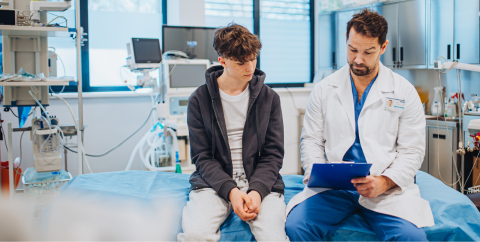Thrive Kitchen: Getting nutritional support
12 December, 2021
People who have been diagnosed with cancer and are in treatment may have different nutritional needs than before their diagnosis. That can include eating and drinking enough, changing diet based on impacts of treatment, or adjusting the types of foods one consumes.
Researchers also agree that a healthy diet—one that provides adequate nutrients and hydration—can help patients to feel better before, during, and after treatments.
Many cancer centers offer nutritional support services to patients and their families to learn more about how they can address nutritional concerns and ensure they’re getting the foods and nutrients they need to support their bodies during a difficult time.
Renown Institute for Cancer in Reno provides these nutritional tips:
- Be prepared for day-to-day taste changes.
- Keep food within easy reach at home.
- Have meals and snacks ready as small and more frequent eating may be easier.
- Drink plenty of fluids even when you're not hungry or thirsty.
- Family members - try not to push eating and drinking, encourage with support.
To get personalized nutritional recommendations, ask your oncologist or nurse navigator to connect you with a dietician or nutritionist. Or contact a ThriveNV navigator for additional resources.
You May Also Like

Cancer in Nevada: What the latest national data means for prevention, early detection and survivorship
01.26.2026
Each year, the American Cancer Society releases its annual

Ultra-processed foods and lung cancer: What a large U.S. study means for prevention
01.05.2026
Lung cancer remains the leading cause of cancer death worldwide, and while smoking is the dominant risk factor, it is not the only one shaping who

Survivorship care plans linked to better long-term outcomes for childhood cancer survivors
11.07.2025
Thanks to advances in treatment, more children are surviving cancer than ever before — with nearly 580,000 childhood cancer survivors expected to